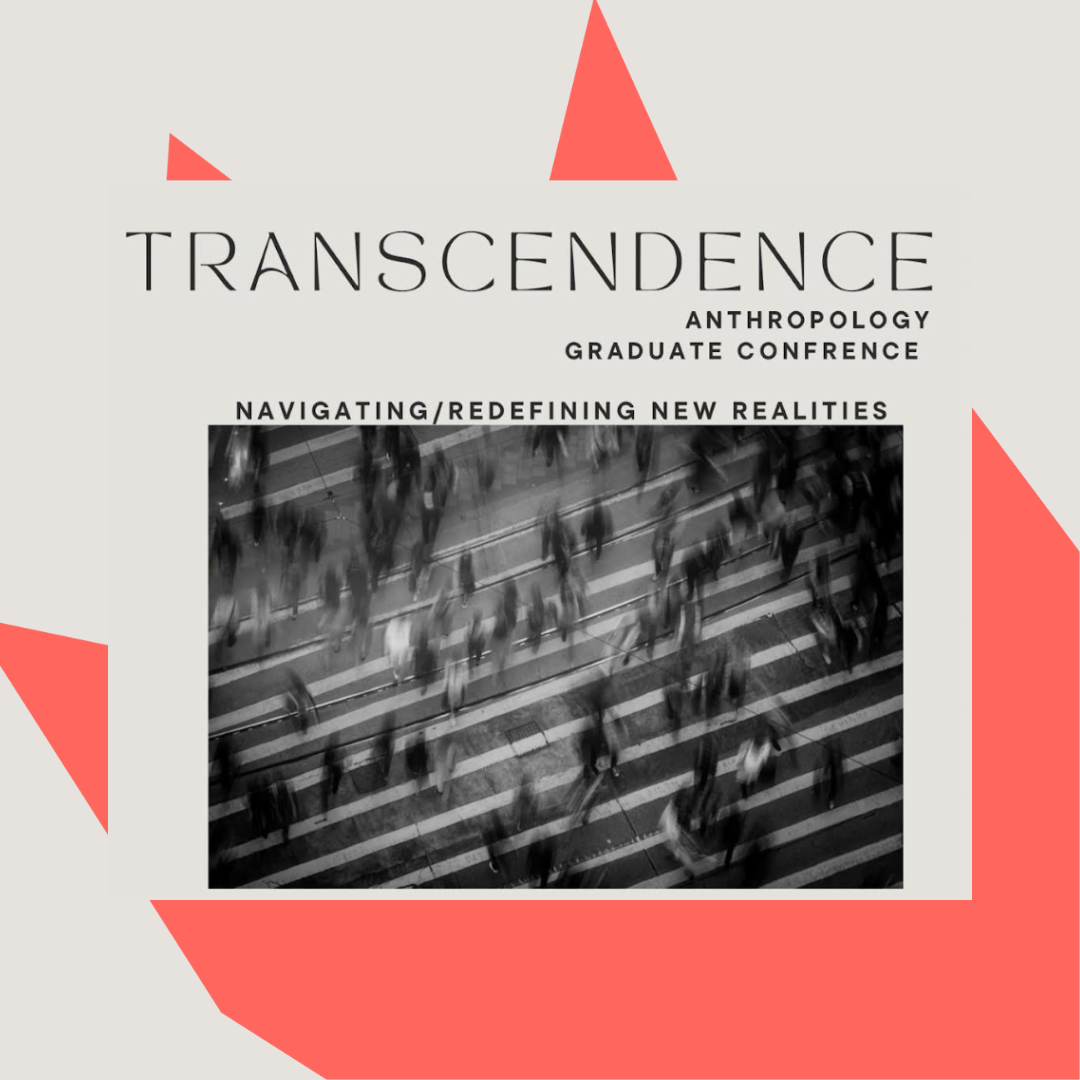Date:
April 20, 2024
10:00am – 5:00pm
← Go back
Transcendence: Anthropology Graduate Student Conference
Transcendence often connotes the idea of escape–but it raises crucial questions: what are we transcending, and to where do we aspire? Additionally, what should we learn to transcend, and to where should we aspire? This conference invites scholars, students, artists, and activists to engage with this pair of questions in both its descriptive and normative dimensions.
How have new scientific theories and emerging technologies challenged and redefined the structural, biological, and cultural boundaries that have traditionally defined us as human beings? What ethical-political projects have pushed human beings to transcend the individual, the communal, and even the special? What lies beyond transcendence? Will it lead us toward divinity, achieve immortality, and usher in an age of equality and prosperity among humans and the rest of our earthly kin? Or might we become obsolete or even extinct? Additionally, who gets to transcend? Will modern forms of transcendence inevitably fall along the old fault lines of race, gender, and class? Does it portend new divisions of inequality that itself transcends the old? The diversity of transcendences and its uses index the diversity of social imaginaries that undergird these various forms.
Maurice Blanchot, however, argued that transcendence did not mean escape, but as an expression of otherness that exists both within and beyond human existence. Following this perspective, we explore how might transcendence can also point to ways of remaking our immanent and tangible realities. What new relations, worlds, and ways of existence are possible after transcendence; of our material bodies, political structures, economic realities, and epistemological frameworks?

Picture:
Designed by Olivia Goode
Location:
6 East 16th Street, 11th Floor, Wolff Conference Room
